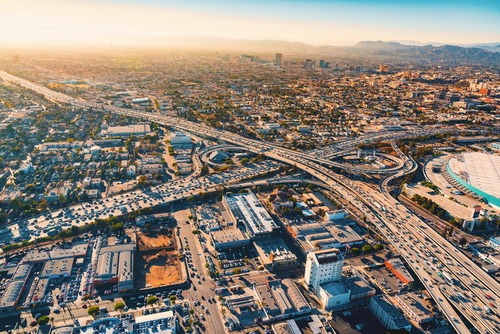
U.S. Sen. Maria Cantwell (D-WA), chair of the Senate Committee on Commerce, Science, and Transportation, identified her priorities for infrastructure during a hearing on surface transportation Wednesday – mega projects, freight infrastructure investments, and highway-rail at-grade crossings.
“To me, three things are very clear,” Cantwell said. “One, Congress must provide funds to invest in mega projects that are important to our nation and to regional economies. Second, we’ve already seen that freight and infrastructure programs have helped our economy be more economically efficient, but more needs to be done. If we can ease the congestion on our roadways, and at rail crossings, and our ports, it only helps our economy grow. And third, I believe we need to do more on helping at-grade crossings, particularly because of rail congestion.”
According to the ASCE, without investment into infrastructure, America will lose $10 trillion in GDP by 2039.
“We live in an ever-increasing global economy, where more than 95% of consumers live outside our borders. That means American workers and businesses need world-class infrastructure to reach customers, and we need to be competitive,” Cantwell said. “Instead, the American Society of Civil Engineers gives the United States infrastructure a rating of C-minus. So, we definitely need to improve that grade. Right now, the United States only invests 0.7 percent of our GDP in transportation infrastructure. Other countries are investing up to eight times that amount, and the United States needs to make more investments if we are to remain competitive.”
To highlight her point, Cantwell said in her home state of Washington, a train blocked the only access to the waterfront for three hours in April 2016. When two emergency events happened on the other side of the train – a woman giving birth and a child who needed medical attention – first responders had to crawl through the rail cars to render aid.
Additionally, Cantwell said the nation’s ports need attention to address congestion issues.
“We also need to help the serious congestion at our ports with containers. There are currently 26 ships anchored, idle, off the Port of L.A./ Long Beach because they are not able to get to port,” Chair Cantwell said. “When ships are unable to get to port, too often foreign-owned carriers offload goods at American ports and then load up empty containers to go back to Asia, leaving U.S. exports behind. A recent investigation found between July and December of 2020, carriers rejected at least 1.3 billion in U.S. agricultural exports.”